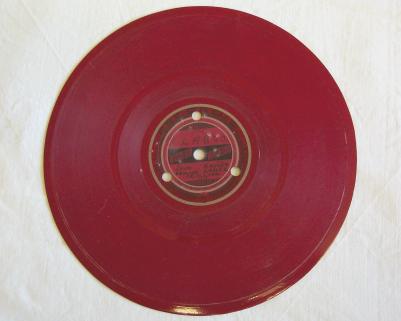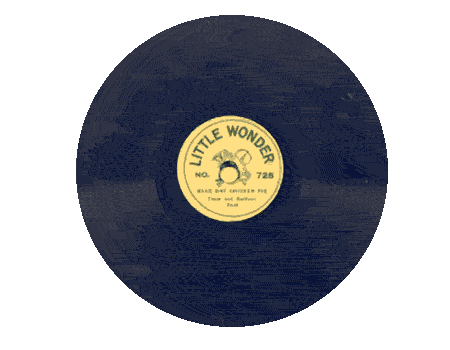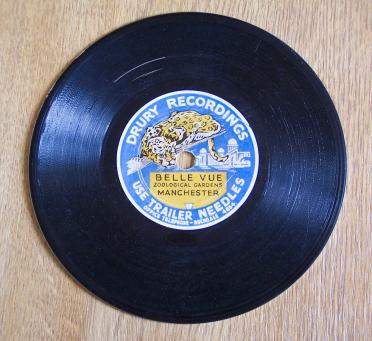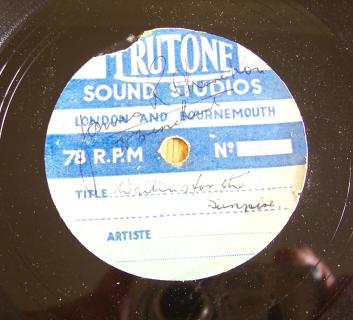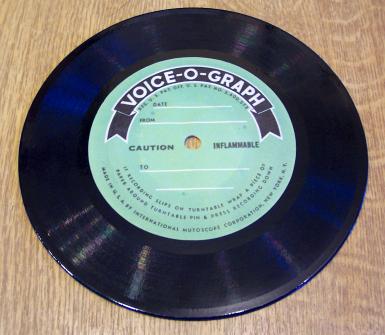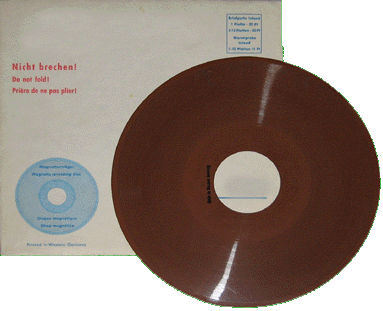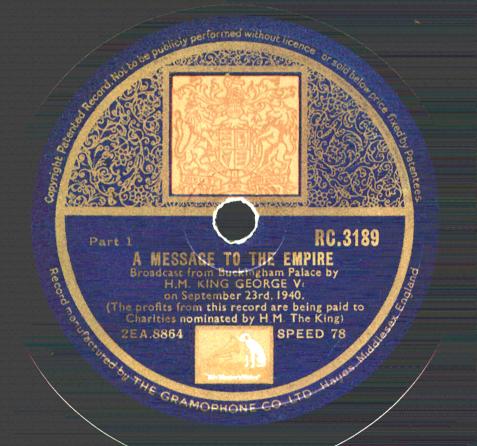Shaw Sounds receive many 78 rpm records for transfer and restoration.
Here are just a few of the unusual ones showing the varied labels of the era.
|
|
k k k HUNTLEY & PALMERS Biscuit Advertising Record - 85mm in diameter   78 pressing on orange coloured card  These little discs were used frequently by servicemen during the war to send messages to their loved ones
c
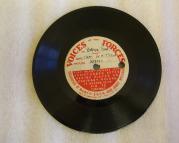 In the early days of the BBC, all sound effects for radio programming were available on shellac and vinyl
Many of these records played from the inside label groove to the outer edge.
Unlike motor cars years ago, 78 rpm records occasionally came in different colours! 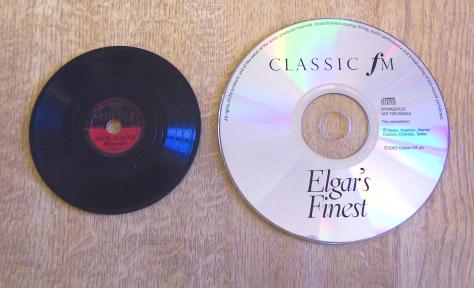
A 1940's promotional 78 shellac record - 3" in diameter, actually smaller than the present CD !
Many styles and names were given to 78 disks, even 'Little Wonder'
Here are some more unusual record labels of the 1940s - 1950s
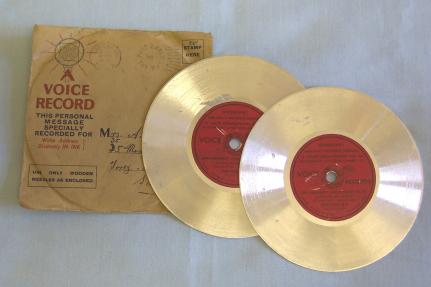 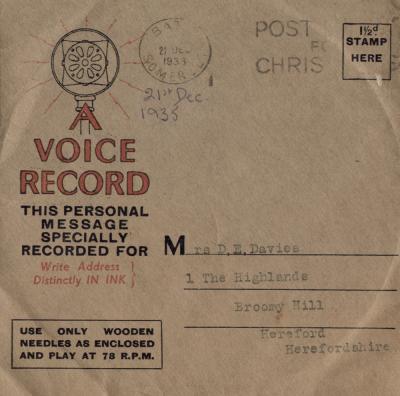
In America in 1900, the two leading manufacturers of flat records were Columbia, which used 80 rpm as its speed, and Victor, which used 76 rpm. Since one company's records were playable on the other's machines, it is only logical that the eventual standard speed would be in the middle. By 1925, the speed of the record became standardised at a nominal value of 78 rpm. However, the standard was to differ between America and the rest of the world. The actual 78 speed in America was 78.26 rpm, being the speed of 3600 rpm synchronous motor (run from 60 Hz supply) reduced by 46:1 gearing. Throughout the rest of the world, 77.92 rpm was adopted being the speed of a 3000 rpm synchronous motor powered by a 50 Hz supply and reduced by 38.5:1 gearing. This 78 rpm record is a 1945 live recording at The Green's Playhouse, Glasgow by the artist 'Joe Loss and his Orchestra' Property of Robert Pool.
Transfer - Copy - Convert LP to CD | Vinyl to CD | 78 to CD | Tape to CD | Cassette to CD | DAT to CD
|
|
|






































